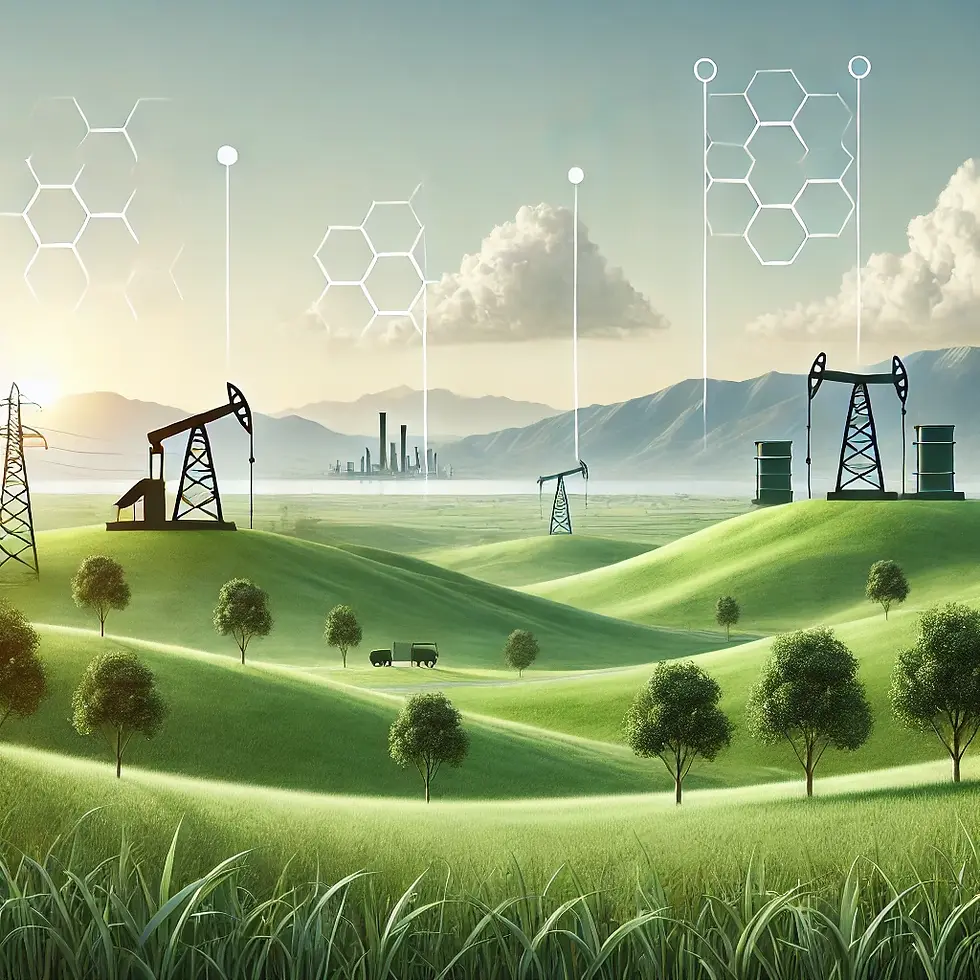Do You Really Need a College Degree to Succeed in Oil & Gas?
- travismccaughey
- Jul 2, 2025
- 3 min read
In the oil and gas industry, we work in extremes — remote locations, subzero temps, high-pressure systems, and unpredictable schedules. What matters most here isn’t always a diploma on the wall. It’s whether you can get the job done safely, efficiently, and without excuses.
But still, the question lingers:
Do you need formal education to prove you're capable, competent, and ready for more?
Let’s break it down.
Degrees vs. Doing: What Really Counts?
There are a lot of roles in oil and gas that don’t require a degree:
Lease operators
Measurement techs
Logistics coordinators
Chemical pumpers
Facilities operators
And yet, when you try to move into management or office-based roles, things change. Suddenly, “degree required” starts popping up. But why?
Is it because state or federal law says so? Usually not.
Is it about actual skill? Also, not always.
Is it about reducing liability? Now we’re getting somewhere.
Many companies lean on degrees as a risk management tool. A diploma doesn’t guarantee competency, but it does say — “we hired someone qualified.”
Could We Train People Internally Instead?
Absolutely. The truth is, many oilfield workers already have the work ethic, mechanical understanding, and safety awareness to thrive in more technical or administrative roles. What’s missing is structured guidance.
So why don’t more companies offer internal learning paths — say, from field tech to scheduler, or operator to HSE advisor?
One reason is that the industry tends to prioritize output over mentorship. But we’re changing. Technology, generational turnover, and the digital shift are forcing us to build more sustainable development pipelines.
If you're an educator and you would like to engage with our podcast audience, reach out! hello@crudecommunication.com
Do We Just Need Structure?
Let’s be honest — not everyone is a self-starter. That’s part of why traditional education exists. Colleges offer structure, guidance, and pacing that help people move forward.But that doesn’t mean it’s the only path. You can learn almost anything online today — if you know what to look for, and how to apply it. Try searching “gas lift optimization” or “oilfield cost control” on YouTube — you won’t find much. Unlike coding or finance, oil and gas is still a guarded industry. Maybe it’s liability. Maybe it’s culture. But if you want to learn it, most of the time, you need a mentor or a company willing to teach you.
That’s part of why we created Crude Communication – The Book — to fill the gap for field workers who are ready to grow.
What Actually Requires a Degree?
A few oilfield roles are bound by regulation:
Engineering (especially PE-licensed roles)
Electrical/instrumentation design (depending on jurisdiction)
Safety professionals managing multi-state compliance
NFPA - Fire Protection and system design
Environmental and permitting roles tied to federal requirements
But for most others? The need for a degree is company policy — not law.
Is Education Just Gatekeeping?
Sometimes, yes. There’s still a mindset that a degree proves someone can follow through — even if it’s not in a relevant field. Can you get into management without a degree? Rare, but not impossible. You’ll need to overdeliver, outcommunicate, and build trust at every step.
So What Should You Do?
If you don’t have a degree, get educated in something useful.Electrical, welding, measurement, safety, controls — skills that apply directly in the field. If you do have a degree, make sure you can back it up with real-world competence.
And if you’re leading others — build pathways for people to grow from within. Field-to-office shouldn't be a myth.
Read more on our blog: Elevating Listening in the Oil and Gas Sector
Final Thought: Success Is What You Do with What You Have
You don’t need a name-brand school to build a meaningful, rewarding career in this industry. But you do need something: Skills.Curiosity.Work Ethic.Guidance. Get something. Then do something with it. And if you’re not sure where to start — start small. Take a short training course. Have a conversation with someone in the role you want. Or just the next job done right.
Because in oil and gas, nobody hands you a career. You build it.
What do you think? Let us know in the comments below or tag us on social.
Want More?
What do you think?
You dont need a degree, college is over rated!
You need something other than a highschool diploma





Comments